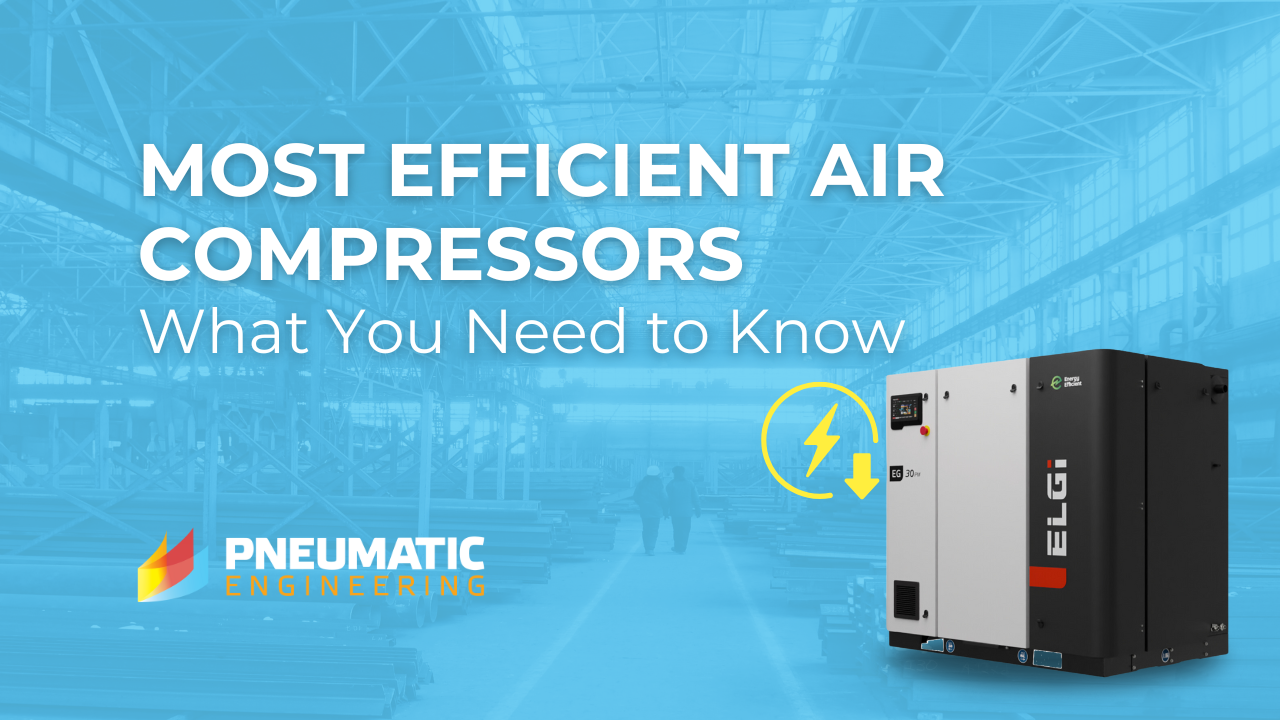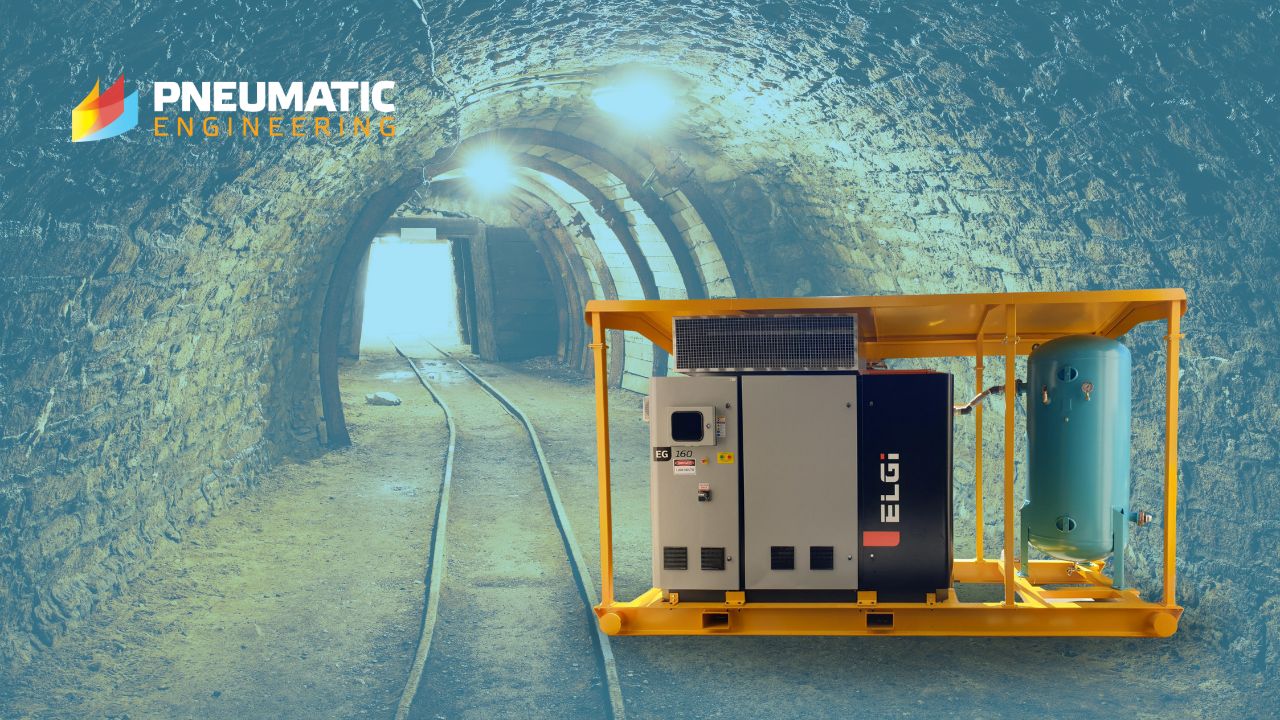When choosing an air compressor, efficiency should be a top consideration. Energy-efficient compressors don’t just reduce your power bills—they also improve operational reliability, reduce environmental impact, and offer long-term savings across the lifetime of your equipment. If you’re looking to upgrade or gain a better understanding of compressor efficiency, this guide is for you.
What Affects Compressor Efficiency?
Understanding what makes one compressor more efficient than another starts with three key factors:
1.Load Profile and Duty Cycle
Compressors are most efficient when matched to the air demand. Equipment operating at partial loads or under fluctuating demand often wastes energy unless supported by technology designed to handle variable output.
2.Motor Technology
Fixed-speed motors run at a constant speed, regardless of demand. Variable speed drives (VSDs) adapt motor speed to match air requirements, significantly lowering energy consumption—especially in operations with changing air usage.
3.System Design and Maintenance
Even the most efficient compressor can become inefficient if the system isn’t designed or maintained properly. Factors such as pressure drop, leaks, filter condition, and piping layout all impact performance.
Compressor Types Ranked by Efficiency
Not all compressors are created equal. Here’s how the main types compare in terms of efficiency:
Rotary Screw Compressors – Most Efficient for Continuous Use
These are among the most energy-efficient options for continuous-duty applications. They offer steady airflow, low vibration, and are ideal for industrial environments that require consistent performance.
Scroll Compressors – Efficient in Smaller, Oil-Free Applications
Scroll compressors are oil-free and compact, making them ideal for small-scale applications such as medical, dental, or laboratory use. While they are efficient at smaller capacities, they’re not suited to large-scale operations.
Piston (Reciprocating) Compressors – Less Efficient but Good for Intermittent Use
These are robust and affordable for intermittent use but are generally less efficient due to start/stop cycles and mechanical losses. Best suited for low-demand or backup applications.
The Rise of Variable Speed and Permanent Magnet Motor Technology
Modern efficiency gains come from more than just compressor type—advanced motor technology is playing a key role in lowering operational costs.
Variable Speed Drives (VSD)
VSD compressors adjust motor speed to match compressed air demand. This reduces power consumption, eliminates unnecessary unload cycles, and delivers up to 28% savings in life cycle costs.
Permanent Magnet Motors: The ELGi Advantage
Permanent magnet motors take this a step further. The ELGi EG Permanent Magnet Screw Compressor is a standout in energy efficiency. It uses ELGi’s TORQPM technology in a Permanent Magnet Synchronous Motor achieving IE5+ efficiency ratings.
This results in:
- 17% reduction in Specific Power Consumption (SPC)
- 22% increase in Free Air Delivery (FAD)
- Up to 45% savings in life cycle costs
It also features:
- Direct drive system for optimum performance
- Intelligent thermal valve system to maintain ideal oil temperatures in all conditions
- Neuron 4 HMI controller with 7-inch touchscreen for smarter, more efficient operation
- Lower maintenance costs – unlike other permanent magnet systems, the air-end and motor can be serviced separately. This design simplifies repairs, reduces downtime, and lowers ongoing service costs.
For businesses focused on reducing operational costs and environmental impact, it represents a new benchmark in air compressor performance.
Choosing the Right Compressor for Your Needs
Efficiency doesn’t come from the compressor alone. It’s about choosing the right unit for your application and ensuring the system as a whole is working optimally. Consider:
- The nature of your air demand—steady or fluctuating?
- System design and potential bottlenecks
- Lifecycle costs, not just upfront price
- Support and servicing availability
A comprehensive assessment can uncover hidden inefficiencies and help identify the most suitable, energy-efficient solution for your site.
When it comes to choosing the most efficient air compressor, the right solution depends on your unique operating conditions. From rotary screw units to advanced PM motor technology, there are significant opportunities to improve performance and reduce costs.
Ready to reduce your power bill and optimise your system?
Speak to our team about your current setup or request a tailored energy audit to identify the most efficient compressor for your operations.
?(08) 6350 4802




